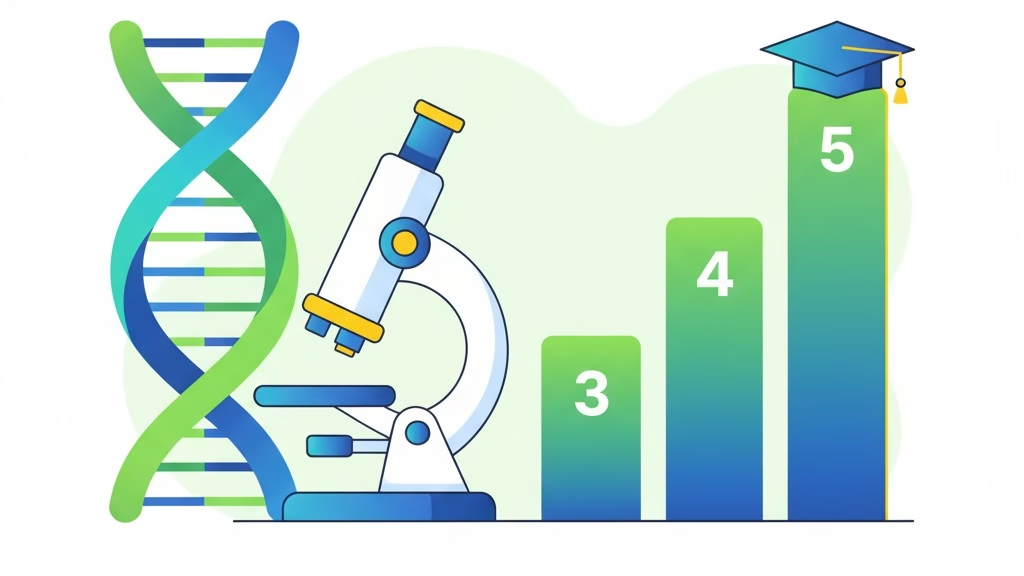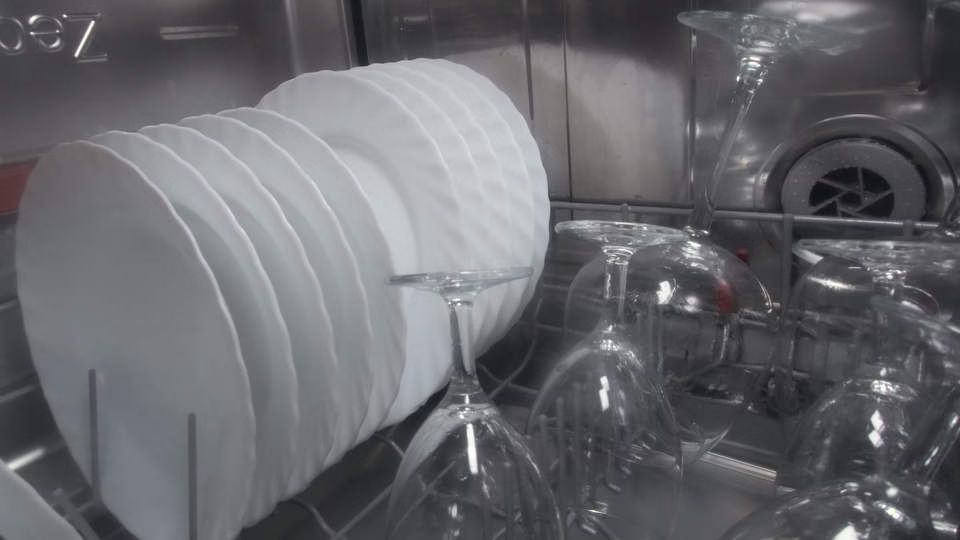Learn what score you need for APES to boost your college applications and get tips on AP score lookup.
Table of Contents
Key Takeaways
A good APES score is usually a 3, 4, or 5. Many colleges want a 4 or 5 to give you credit. Recent data shows more students are passing. In 2025, about 69% of test-takers scored a 3 or higher. This shows the test is becoming more accessible for everyone.
Knowing the score breakdown helps you set a clear goal. Learning how to check your scores and what they mean can save you time and money in college. Aim for a high score. But remember, even a 3 can be a great help for many schools.
Want to see where you stand? Try this APES Score Calculator to get an idea of your potential score.
What’s a Good APES Score? (And What It Means for College Credit)
Let’s Decode Your APES Score
Picture this. You just finished a tough year in AP Environmental Science. You learned about ecosystems, climate change, and how to live sustainably. The exam is over. Now you’re waiting for your score. You’re wondering, “Did I do well? What does this score mean for my future?”
If you want college credit or a boost for your college application, you need to know what a good APES score is. It’s not just a number. A good score can let you skip introductory classes in college. It can save you money and time.
This guide will explain everything. We’ll look at recent score data. We’ll see what you need to get college credit. You will learn how to check your scores and set goals for the 2026 exam. Let’s demystify your APES score!
How the APES Exam Works
First, let’s understand the test. The AP Environmental Science exam happens every May. It tests your knowledge of the environment, how humans affect it, and ideas for a sustainable future.
The test has two parts: multiple-choice questions and free-response questions.
Your score is a number from 1 to 5.
- 5: Extremely well qualified. Top performance.
- 4: Well qualified.
- 3: Qualified. This is the passing score for most goals.
- 2: Possibly qualified.
- 1: No recommendation.
Your answers are combined into a “raw score.” This is then converted to the 1-5 scale. The College Board adjusts the scale each year to keep it fair. This means a “4” in 2025 shows the same skill level as a “4” in 2024.
Knowing this helps you see how you compare to other students across the country.
What Recent Scores Tell Us (2024-2025 Data)
Looking at recent scores shows us what is possible. It helps you set a realistic goal.
In 2024, about 236,000 students took the test. Here is how they scored:
- 5: 9.2%
- 4: 27.5%
- 3: 17.4%
- 2: 25.8%
- 1: 20.1%
The pass rate (scores of 3 or higher) was about 54.1%. Many students got a 4. But the number of 1s and 2s shows the test can be challenging.
Now, look at 2025. The scores got better:
- 5: 12.6%
- 4: 27.8%
- 3: 28.8%
- 2: 15.0%
- 1: 15.8%
The pass rate jumped to 69.2%! This is a big increase. Why? Maybe teachers have better resources. Maybe students are preparing better.
The main takeaway? APES is becoming more accessible. If you are preparing for the 2026 test, aim high. Try to score a 4 or 5 to be in the top 40% of students.
So, What Is a “Good” APES Score?
The answer depends on your goals.
Generally, a score of 3 or higher is a “pass.” It shows you have college-level skills. But for most students, a “good” score is a 4 or 5. These scores unlock the best benefits.
Here’s a simple guide:
- Score of 5: Exceptional. You are in the top group (about 9-12% of students). This is ideal if you plan to study environmental science or a related field.
- Score of 4: Strong. About 27-28% of students get this. It’s a solid score that often earns credit at good colleges.
- Score of 3: Good enough. Many schools give credit for a 3, especially for general education courses.
- Scores of 1-2: These scores do not usually earn credit. But don’t be discouraged. Use it as a learning experience.
Think about your dream school. An Ivy League school may want a 5. A state university might accept a 3. Your score should match your plans.
How Your Score Gets You College Credit
A strong APES score can earn you college credit. This can save you thousands of dollars on tuition.
Most colleges give credit for a score of 3 or higher. More selective schools often require a 4 or 5.
For example:
- A 5 might give you 4-8 college credits. That’s like skipping a whole class!
- A 4 could earn you 3-4 credits. This might place you into a more advanced class.
- A 3 often gives you elective credit or fills a science requirement.
With pass rates now at 69%, more students are getting these benefits. Always check the policy of the colleges you are interested in.
A high score also makes your college application look better. It shows you are curious about important topics like sustainability.
What Affects Your Score?
Your score isn’t just luck. Several key things influence it.
- How You Prepare: Students who use practice tests and review materials do better.
- Your Teacher and School: Good resources, like labs, can make a big difference.
- Your Study Habits: Studying a little bit often is better than one big cram session.
- Test Day Itself: Stay calm. Manage your time well. The free-response section is 40% of your score, so practice writing clear answers.
Recent data shows students improved most on data analysis questions. Focus on your weak areas to see the biggest score gains.
How to Boost Your Score for the 2026 Exam
Ready to get a great score? Here’s how.
Build a Strong Base
Start early. Learn the main ideas:
- Ecosystems and biodiversity
- Human population growth
- Earth’s systems and resources
- Global change and sustainability
Use tricks to remember cycles, like the water or carbon cycle.
Practice, Practice, Practice
- Take full practice tests under real exam conditions.
- Review your mistakes. If free-response questions are hard, practice writing structured answers.
- Focus on your weak spots. Multiple-choice scores saw big gains, so this is a good area to improve.
Use the Right Tools
- Join a study group.
- Look at past score data to set a goal.
- Connect what you learn to real-world events, like new climate laws.
On Test Day
- Pace yourself. You have 90 minutes for 80 multiple-choice questions and 70 minutes for 3 free-response questions.
- For tricky questions, try to eliminate wrong answers first.
- For free-response, make a quick outline before you write.
With a 69% pass rate, good preparation can help you succeed.
How to Check Your AP Scores
Getting your scores is easy. They come out online in early July.
Here’s how to check them:
- Log into your account on the College Board website.
- Go to the scores section.
- Enter your information to see your score report.
You can send your scores to colleges for free if you set it up when you registered. You can also send them later for a fee. Tip: Download and save your score report for your records.
Let’s Bust Some APES Score Myths
Don’t believe everything you hear.
- Myth: A 3 is a bad score.
Truth: Many colleges accept a 3 for credit. It’s a solid achievement. - Myth: Your AP score decides your college success.
Truth: It’s just one part of your application. Your hard work matters more. - Myth: APES is an easy 5.
Truth: Only 9-12% of students get a 5. It takes real effort. - Myth: Retaking the test will greatly improve your score.
Truth: You might improve a little, but focused study is what really helps.
Your Score Is Just the Beginning
Remember, this class teaches you more than just a score. You learn about environmental justice, renewable energy, and how to protect our planet. This knowledge is valuable for any future career.
Your Next Steps
A good APES score is a stepping stone. It can open doors to college and save you money. The pass rate is rising, so your hard work can really pay off.
Decide on your goal. Prepare with a plan. Use the data to inspire you.
Start studying now. Practice hard. You can do this. Good luck.

























